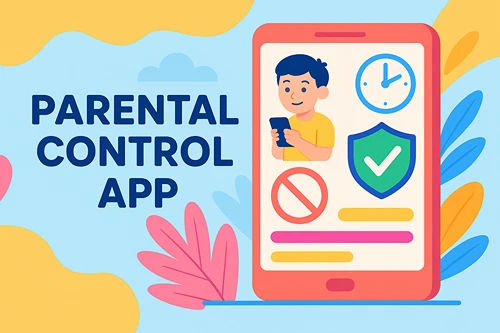How to Help Students Get Over Their Math-Phobia
Math is considered to be the language of the universe. However, for most students, it is a subject filled with ancient hieroglyphs, which seem almost impossible to decipher. But this is not the reality. Students’ initial anxiety is typically caused by a preconceived belief that math is a difficult subject to succeed in.
Students who experience this anxiety develop “mathophobia,” or the fear of math. Most students find this to be a challenging task. Dealing with symbols, numbers, and complicated equations can be overwhelming. So, how can you assist your child in overcoming their phobia of math?
With the following tips in mind, you can help your child overcome their fear of math and even end up developing a liking towards the subject. Let’s begin.
Best Ways to Overcome Mathophobia
Here are some of the best ways to help your child overcome their math fear.
Build a Strong Foundation
Developing a solid foundation in the subject is the first step in assisting your youngster. Education systems’ math curricula emphasize building a solid foundation for fundamental mathematical concepts.
Additionally, it is necessary to introduce addition, subtraction, schedules, and other basic math concepts gradually. Gaining an understanding of these fundamental ideas greatly aids in solving more challenging issues.
Calculus and integration are examples of complex ideas that must be divided into smaller, more manageable notions. You should use interactive exercises that promote understanding to teach these theoretical issues.
On the other hand, well-known mathematics private tutor use sophisticated methods by teaching their students through model drawings. As a result, all educators—at home or at school—must concentrate on giving pupils a solid arithmetic foundation.
Practice Regularly
Most kids don’t realize how important it is to practice math on a regular basis. To see results, every subject—especially math—needs constant practice. Additionally, doing arithmetic tasks regularly strengthens learning and enhances cognitive functioning.
You can start by learning formulas, practicing solved problems, and practicing the fundamental ideas. After that, you can tackle increasingly challenging issues. You will gradually discover that your accuracy and performance have improved over time.
Remember, confidence and familiarity with the subject are increased via practice and regularity. Therefore, make sure that you plan to dedicate at least 90 minutes each day to studying arithmetic.
Use Different Methods to Solve Problems
Experienced math tutors use several strategies to overcome challenging arithmetic issues. On the other hand, you can consult a guide or speak with your instructor about the various approaches to problem-solving.
Moreover, you must write down various approaches to the same issue. You can determine the simplest approaches and use them after conducting your own analysis with your teacher’s assistance. To stretch your boundaries, this will also help you improve your math-solving abilities.
Enroll in a Math Tuition
It is very challenging for students to understand every idea taught in a class of more than fifty. Even while independent study is always valued, students who would benefit more from direct tutor supervision will sign up for online math classes.
On the other hand, a competent instructor will encourage their pupils to get over their math anxiety and improve their conceptual understanding. Professional math tutors are your child’s greatest mentors and will go above and beyond to help them overcome math challenges.
Additionally, tutors assist students with strategic academic planning. They also offer particular advice on how to approach challenging issues.
Thanks to their specialized teaching techniques, you will quickly notice a noticeable improvement in your child’s performance and study habits.
Be Confident
The secret to handling any decision in life is confidence. This may be tackling a math subject you believed was impossible to understand or wearing clothing that your friends made you feel self-conscious about.
Solving complicated mathematical issues takes a lot of thought and trial and error. It also teaches you how to explain these ideas coherently and involves deriving systematic solutions.
Remember, if you want to solve equations successfully, you must have self-confidence.
Stay Positive, Be Patient, Make it Fun
The greatest virtue is patience. Even though we are sick of hearing it, the widely accepted advice holds many truths. The same is true for students, who must maintain their optimism and self-assurance during the learning process.
Students frequently get off to a confident start but quickly lose patience and hope when they face a roadblock. On the other hand, demotivation results, and mathphobia resurfaces. Therefore, it’s critical to have patience and resist giving up readily in the face of small setbacks.
Expert Advice: Treat yourself with kindness and treat yourself when you reach a new goal. You will remain inspired and self-assured during your learning process in this manner.
And don’t forget to incorporate fun activities, including math games. Begin by celebrating Pi Day!
Embrace Critical Thinking
To remain competitive in today’s academic environment, one must possess high order thinking skills (HOTS), often known as critical thinking abilities. Students also need to have greater cognitive processing abilities to solve any mathematical problem.
Some of these abilities that call for various teaching methods in order to be understood are:
- Evaluation
- Synthesis
- Analysis
While developing critical thinking skills takes effort and time, once you have mastered them, academic success will be at your doorway.
Apply it in Daily Life
Students need assistance from parents and tutors in using arithmetic to do everyday chores. You can engage your youngster in arithmetic by using real-world examples to make it easier for them to understand.
You can make math enjoyable by letting your youngster pick up the change and make purchases. Additionally, you can teach your child fractions or ratios by making pizza slices on a fun cooking day at home.
These hands-on exercises will help your youngster overcome their arithmetic anxiety and make learning enjoyable. You will also feel more at ease and stress-free.
Wrapping Up
Students worldwide struggle with math phobia. However, this does not stop you from overcoming it and developing a good rapport with math. If parents and tutors work together, your child will be confident and interested in the subject.
Therefore, look for assistance from top-notch math tutors who can help your child easily resolve any arithmetic issue. But keep in mind that it takes time and effort on the part of classmates, parents, tutors, and oneself to get over this phobia. Therefore, use these techniques to get over your fear of math.










